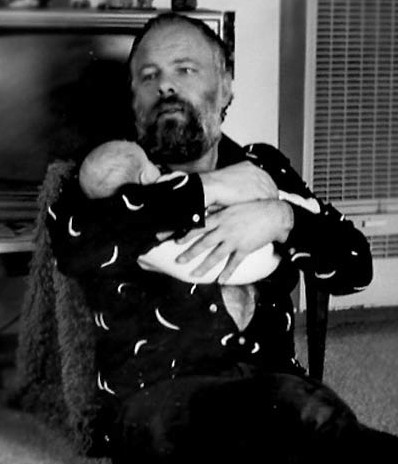For a 1975 “Talk of the Town” piece in the New Yorker, Anthony Hiss toured Los Angeles, that strange and fascinating turf, enjoying near journey’s end an audience with Philip K. Dick, whose visions weren’t fully appreciated during his abbreviated lifetime and were even sort of undersold in this article. An excerpt:
In the afternoon, we drove over to Fullerton to see Philip K. Dick, my favorite science-fiction writer, author of 33 novels and 170 short stories. Past the House of Egg Roll, past Moy’s Coffee Shop (Chop Suey, Hot Cakes), past Bowser Beautiful, through Bel Air. We drove to the end of Sunset Boulevard, where we saw seagulls, 18 surfers in wet suits, a blue suggestion of Catalina to the southwest, and an Indian girl in a green-and-gold sari on the beach. Then south, past a concrete wall painted ‘TOMMY SURKO SAYS FOR MY KIND OF GIRL THERE’S ONLY ONE! TOMMY SURKO!’ Behind the tall palms on Venice we could see snow on the mountains. Kids were skateboarding down a hill on Lincoln. Past Woody’s Smorgasburger, onto a freeway to Fullerton.
Philip K. Dick lives in an apartment full of books and records and photographs with his wife, Tessa; his small son, Christopher; and two cats, Harvey Wallbanger and Sasha. He is jolly and tubby and bearded. His books, which are hilarious, are popular in France, because the French think they are about how grim everything is. Dick showed us a French newspaper piece about him—the subtitles were ‘Le Chaos,’ ‘L’Acide,’ ‘Le Suicide,’ ‘Les Machines’ ‘La Société Totalitaire,’ ‘La Paranoïa.’ Dick has just finished a book about Tim Leary and the LSD crowd, and what happened to them.
We had stopped in to make a short call of homage, and wound up talking along for hours, drinking wine, and Tessa going out for some Chinese food, and then talking about cosmologies until it was almost time for our plane back to N.Y. The apartment also contains a two-foot-high metal rocket ship on a wooden base—this is his Hugo Award, the highest award in science fiction. The plaque is missing, though, because Dick once used the award to break up a fight. ‘It grabs good,’ he says. As for the cosmologies, this is what emerged from our discussions: cosmologies all seem to be based on repetition—you know, first the universe expands, then it contracts, then it expands again, etc.—but maybe that’s not so. Maybe this whole expansion business that the universe is currently embarked upon is going to happen only once. That would mean that every day really is a new day, right? Also, maybe it’s not true that Einstein was smarter than Newton. Maybe Newton’s laws accurately described the universe as it then existed. But since then it’s expanded and got more complicated, and can be accurately described only by Einstein physics. Which will eventually become outdated, maybe.•
_______________________
In 1977, PKD described tangential, alternative worlds which he felt may have existed in reality–or perhaps just his mind.

